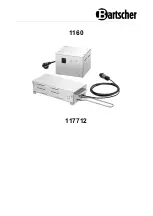
6 / 8
P/N 1036525-EN • REV F
Figure 11: Removing the optical chamber
(1) Optical
chamber
base
(2) Optical
chamber
(3) Detector
cap
Maintenance
These smoke detectors are designed for easy field service and
maintenance. When installed and used properly, they require
minimal maintenance.
The smoke detector should be tested monthly. See “Sensitivity
testing” and “Smoke testing” on page 5.
Fire prevention and escape
The purpose of an early warning smoke detector is to detect
the presence of fire in its early stages and sound an alarm
giving the occupants time to exit the premises safely.
Avoid fire hazards
No detection device can protect life in all situations. Therefore,
safeguards should be taken to avoid potentially dangerous
situations as follows:
•
Do not smoke in bed.
•
Do not leave children home alone.
•
Never clean with flammable liquids such as gasoline.
•
Properly store materials. Use general good housekeeping
techniques to keep your home neat and tidy. A cluttered
basement, attic, or other storage area invites fire.
•
Use combustible materials and electrical appliances
carefully and only for their intended uses.
•
Do not overload electrical outlets.
•
Do not store explosive and/or fast burning materials in
your home.
•
Even after proper precautions have been taken, fires can
start. Be prepared.
In case of fire
In the event of a fire, do the following:
•
Leave immediately. Don’t stop to pack or search for
valuables.
•
In heavy smoke, hold your breath and stay low, crawl if
necessary. The clearest air is usually near the floor.
•
If you have to go through a closed door, carefully feel the
door and doorknob to see if undue heat is present. If they
seem cool, brace your foot against the bottom of the door
with your hip against the door and one hand against the
top edge. Open it slightly. If you feel a rush of hot air, slam
the door quickly and latch it. Unvented fire tends to build
up considerable pressure. Be sure all members of the
household realize and understand this danger.
•
Use your neighbor’s phone or a street fire alarm box to call
the fire department. The job of extinguishing the fire
should be left to the professionals.
Be prepared
Practice the following steps to prepare you and your family in
the event of a fire:
•
Perform fire drills regularly. Use them to assure
recognition of an alarm signal.
•
Draw a floor plan and show two exits from each room. It is
important that children be instructed carefully, because
they tend to hide in times of crisis.
•
Establish one meeting place outside the home. Insist that
everyone meet there during an alarm. This will eliminate
the tragedy of someone reentering the house for a missing
member who is actually safe.
•
If you have children or physically challenged people
residing in your household, use window decals to help
emergency personnel identify the sleeping quarters of
these individuals.
Limitations of smoke detectors
WARNING:
Risk of personal injury or death. Smoke detectors
cannot
provide warnings for fires resulting from explosions,
smoking in bed or other furniture, ignition of flammable liquids,
vapors, and gases, or children playing with matches or lighters.
Failure to properly install, test, and maintain a smoke detector
system may cause it to fail resulting in loss of life or property.
Smoke detectors are very reliable, but may not work under all
conditions. No fire alarm provides total protection of life or
property. Smoke detectors are not a substitute for life
insurance.
Smoke detectors require a source of power to work.
This
smoke detector will not operate and the alarm will not sound if
the detector is not installed properly.
Smoke detectors may not be heard.
A sound sleeper or
someone who has taken drugs or alcohol may not awaken if
the detector is installed outside a bedroom. Closed or partially
closed doors and distance can block sound. This detector is
not designed for the hearing impaired.
(1)
(2)
(3)


























